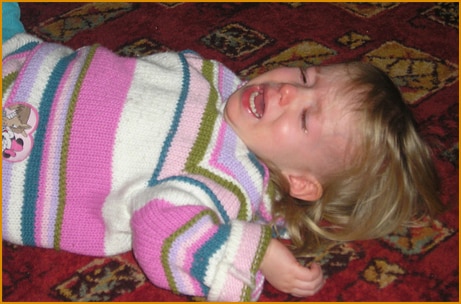
We left off last time suggesting that maybe it’s time to accept the fact that the widely rumored and much discussed Gateway Drug, spoken of in addiction medicine, is actually sugar.
A baby needs to love sugar for survival. Imbibing that liquid, whether from a bottle or a breast, is the one job it has been assigned, and it had better do that job well or its little organism will not survive. But there comes a time when the inborn preference for sweetness outlives its usefulness. Then it’s like an appendix, something we still have but no longer need — an outmoded extra widget that can turn on us and even take our life. Past a certain point, love of sweetness is no longer a survival trait but an element in a slow suicide.
One indication that sugar is an addictive substance is that the opioid blocker naltrexone spoils the sugar high just like it spoils a high from morphine or opium, and patients consequently crave food less, and eat less. Dr. Mark Hyman has observed that most recovering alcoholics recover only from alcohol, but not from addiction. They just switch over to sugar, a legal high for all ages, which has the advantage of not getting the driver’s license taken away.
Dr. Hyman says,
… some are genetically much more prone to sugar and food addiction than others… In fact, it may be that addicts of all stripes are simply unlucky and born with unfortunate genetic variations in our reward and pleasure mechanisms… Those who have sugar addiction, it seems have fewer D2 dopamine receptors and they need extra stimulation to make them ‘turn on.’
This article explains the field of nutrigenomics, which is all about the interaction of nutrition with our genes. Thanks to research by Bruce Ames, Ph.D., and others, we now know that about a third of our DNA is involved in background activity that is…
… controlled by nutrient co-factors. This means that nutrients have a powerful ability to modify the expression of your genes.
Dr. Hyman says the regulation of neurotransmitters and hormones is a complex and tricky business, but he offers five solid suggestions in areas where the ordinary person can take responsibility and accept accountability.
Cross-disciplinary researchers at the University of Oregon have found that very young children have taste preferences (not much of a news flash to most parents). They also discovered something more sinister in three-year-olds: a highly developed sense of brand recognition and brand loyalty. Kids like salt, sugar, and fat, and they remember which pictures are on the boxes of the most scrumptious junk food. Journalist Jim Barlow reports,
In a world where salt, sugar and fat have been repeatedly linked to obesity, waiting for children to begin school to learn how to make wise food choices is a poor decision, says T. Bettina Cornwell, a professor of marketing in the University of Oregon Lundquist College of Business.
In other words, once again it’s back to — that’s right — parents. As Professor Cornwall also points out, “Repeated exposure builds taste preferences.” Research has also shown that “children given red peppers on 10 different occasions will acquire a taste for red peppers and that logic extends to other foods.” So, keep trying with that spinach.
Your responses and feedback are welcome!
Source: “Stopping Addiction to Sugar: Willpower or Genetics?,” DrHyman.com, 02/05/11
Source: “Preschool kids know what they like: Salt, sugar and fat,” EurekAlert.org, 01/24/11
Image by Citril, used under its Creative Commons license.

 FAQs and Media Requests:
FAQs and Media Requests: 











